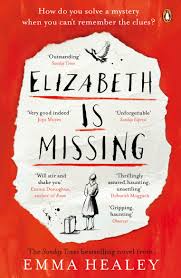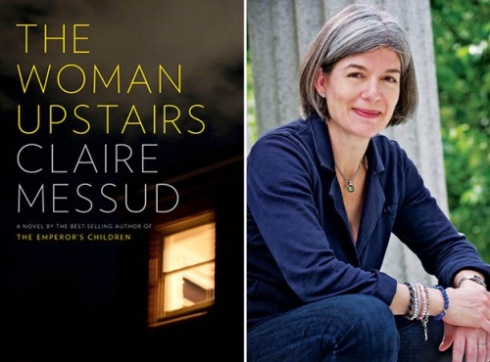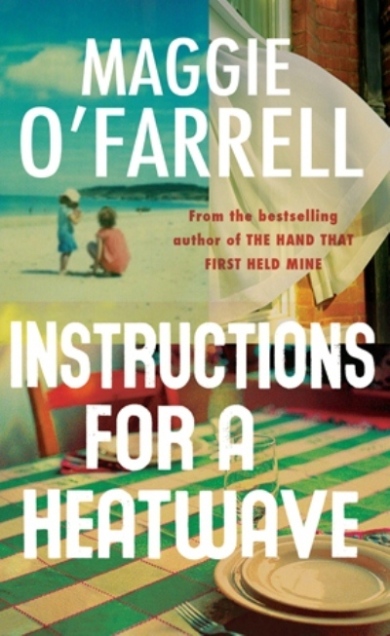The Signature of All Things
February 1, 2015 at 1:15 pm | Posted in Uncategorized | 3 CommentsTags: Book Clubs, book review, Books, good book reviews, Great Reads
The Signature of All Things
Elizabeth Gilbert
Bloomsbury 2013
What a wonderful treat ‘The Signature of All Things’ is. I was initially put off buying this book by Elizabeth Gilbert’s fame from the arguably precocious ‘Eat Pray Love’ but thank goodness I suspended my judgement because this novel is truly awesome in every sense of the word. It’s literary, compelling, different and spiritually underscored. It follows the life of Alma Whittaker a girl born at the turn of the century in the 1800’s to a father who has built an import export empire on his own steamy grit, taking no prisoners on the way. Alma is intelligent, diligent but not conventionally good looking and in no way destined for a typical life of a young lady of her time.
Alma develops a lifelong love for botany and a strong business mind under her father’s tutelage which is sometimes welcome and oftentimes forced. Her work takes her to deep questions about evolution which in turn take her on several journeys; emotional, physical, financial and spiritual
I can’t do this book near enough justice with my review. Alma is such a real and complete character, the setting of Philadelphia is such an apt backdrop for this story and every step it takes you on just feels so right and most splendid of all where the story ends is so glorious for professional women.
The book in haiku: Read, enjoy, wonder, forget how to eat, pray love, renaissance woman
McEwan reigns
November 11, 2014 at 10:24 pm | Posted in Great for Book Clubs, Middle Weight Fiction, The Children Act | 2 CommentsTags: Book Clubs, book review, good book reviews, Great Reads, new fiction, recomended reads
Ian McEwan ‘The Children Act’, Jonathan Cape 2014
Ian McEwan is a master storyteller. In his latest novel he brings us on a journey into the moment of a life of a very successful high court judge, Fiona and the personal and legal challenges she simultaneously faces.
McEwan employs his impressive skills of engineering a plot and grinding the wheels of prose to tenderly lament a marriage in peril after thirty years and to bring us on the journey of Fiona’s greatest professional challenge – the case of a seventeen year old Jehovah’s Witness boy who is refusing a lifesaving blood transfusion on the grounds of his religion.
To compare this novel to ‘Solar’ or ‘Saturday’ would be an easy thing to do but not appropriate, for this novel relays something that has provoked McEwan’s sensibilities and interest and perhaps it is this suspect personal feel that distinguishes this novel from his others.
The Guardian, in their review of ‘The Children Act’ observed that McEwan is fascinated with ‘great institutionalized authorities’ in the upper echelons of society – his protagonist in ‘Saturday’ from the esteemed medical profession and in ‘Solar’ a research scientist. Now in ‘The Children Act’ a high court judge. His deluges into Fiona’s personal difficulties however feel more poignant and sit a little less easy than journeys with his previous characters whose theatrical personalities lend themselves to plots of great scope and pace.
What does McEwan feel about Fiona and her situations really? I’m not sure by the end of the novel but I know her view of the world and her vantage point from the legal profession captured his imagination and I felt glad to have been moved by some deeply beautiful prose;
‘It could be just like that, a poisonous obsession, an addiction drawing him away from home, bending him out of shape, consuming all they had of past and future, as well as present.
Either way unbearable.
Unbearable and fascinating. And irrelevant.’
The Children Act in haiku
Legal vantage points
Logic and closed emotions
Verdicts that flounder
The Secret History Donna Tartt
April 4, 2014 at 4:24 pm | Posted in Award winners, Middle Weight Fiction, Popular Fiction, The Secret History | 1 CommentTags: Book Clubs, book review, Book Reviews, bookclub, Bookreviews, good book reviews, Great Reads, popular fiction, recomended reads

It is understandable how Donna Tartt’s ‘The Secret History’ became a long-term bestseller and conquered a place in so many book lovers hearts. The story centered on a group of young bright affluent students at an exclusive Vermont College in the 1980’s roaming wild and burning through money is exceptionally engaging .and compulsively addictive.
The young group is composed of a variety of apparently sympathetic characters Richard who, unlike his peers, is on a scholarship to the exclusive college and is at great pains to conceal his blue-collar roots, twins Camilla and Charles known for their manners and gentle ways, Henry the emergent leader of the group remarkable for his adaptability to changes in circumstance and ability to mix easily with all sorts of people and also Francis and Bunny who enjoy all life has to offer with great self-assurance. What the characters all have in common is that they are all students of the charismatic erudite Professor Julian Morrow who teaches them Classics exclusively to a level of detail and reverence far above the academic norm.
Inspired deeply by their passionate teacher a few members of the group perform a Dionysian rite one night (a rite designed to work the worshiper into a state of ecstasy in order to feel the power of the gods through wine, dancing and often sexual expression) but the rite has truly gross consequences for the group which go on to drive the plot to even wilder and darker places and the death of Bunny Corcoran (whose death is revealed to the reader in the first line of the novel). 
Do not look for redemption, regret or guilty melancholy from this group, as a reader the novel demands that one must think much bigger when it comes to this motley crew and contemplate openly Donna Tartt’s brilliant subtle suggestions that Henry may himself be the devil incarnate and that in this existential world absolutely anything is possible once you have the nerve and stomach for it.
The plot is set in the familiar routines of college life against the rich dripping backdrop of the classical world of Greek and Latin language, prose and poetry. Donna Tartt’s prose is just so accomplished that at times it feels like God himself has lifted the telephone to call you personally and reveal some select mysteries of the world;
‘…there was never any doubt that he (Henry) did not wish to see us in our entirety, or see us, in fact, in anything other that the magnificent roles he had invented for us: genis gratus, corpore glabellus, arte multiscius, et fortuna opulentus – smooth cheeked, soft-skinned, well-educated, and rich. It was his odd blindness, I think, to all problems of a personal nature which made him able at the end to transmute even Bunny’s highly substantive troubles into spiritual ones.’
The novel in haiku; murderous thoughts fly, money and nerve conquer all, but it takes just one
‘The Woman Upstairs’ vs. ‘Instructions for a Heatwave’
November 10, 2013 at 2:59 pm | Posted in Great for Book Clubs, Instructions for a Heatwave, Middle Weight Fiction, The Woman Upstairs | 3 CommentsTags: Book Reviews, bookclub, good book reviews, new fiction
‘The Woman Upstairs’ vs. ‘Instructions for a Heatwave’
I love both Claire Messud and Maggie O’Farrell. They are both accomplished, polished storytellers and professionals of emotionally awakening prose. In 2006 Claire Messud’s ‘The Emperors Children’ moved me in a way no other piece of literature had. And in 2005 I sacrificed much sleep in reading Maggie O’Farrell’s ‘The Distance Between us’.
‘The Woman Upstairs’ deals with a very interesting and perhaps under-explored topic that of a woman’s disillusion with her place in the world and the crushing binds of familial duty.
Women are expected to be good and nice and ‘The Woman Upstairs’ shows this to be a perennial and generation busting expectation even in the 21st Century. But most importantly ‘The Woman Upstairs’ deals with the unapologetic and growing anger a woman feels when she finds the time to think broadly about her life in this context.
Messud’s leading heroine Nora Eldridge is mad as hell when we first meet her;
‘How angry am I? You don’t want to know.’
Nora desired to be a fine artist but was counseled by her parents to become a teacher instead and have a stable career. Familial circumstances then caused her to devote much time to taking care of her terminally ill mother and then her aging father to the detriment of her own life and dreams. These limits in her life caused her to develop feelings of self-doubt and cowardice that prevented her from living fully and without fear.
A new young pupil in Nora’s elementary school brings into her life an exotic and beautiful family of Lebanese origin. True scholars and artists they bring Nora into their glamorous life of culture and freedom. Nora at lasts tastes the life she has always dreamed of but quickly becomes precariously close with each member of the family as they become for her the family she never had.
The prose and plot is not perhaps as captivating as that of ‘The Emperors Children’ but this novel is just as important as it asks in every chapter questions about a woman’s place in the world, it questions the real and unrealistic expectations of a woman and looks at the importance of a woman’s relationship with herself.
Set in London during the heatwave of 1976 ‘Instructions for a Heatwave’ is a novel based around a family of five whose patriarch tells his wife he is popping out for a newspaper and never comes back.
This brings the three adult children back together to their family home as the search for the AWOL father gets underway. In close proximity to each other the children’s own problems and life situations leak out and brew all hot summer long. As we learn about the human problems each adult child faces the novel becomes a great depiction of a real family facing down difficult marriages, lost dreams, unplanned pregnancies and the worst parts of their personalities hotting up under the pressure of the heatwave.
The reader never assumes one member of the family could have a known explanation for the fathers leaving or that the intimacy of this secret could bring the family closer together. One of Maggie O’Farrell’s greatest traits as an author is to find intimacy in unusual places; in explosive secrets, in geographical distances or in different life choices and how they can help one to appreciate another. Set against the raging summer heat the secrets of the novel cook to boiling point and perhaps like a full moon the characters are unusually affected by the unrelenting high temperature of the summer of 1976.
Maggie O’Farrell’s novels love to suggest that families and marriages are not always as they seem and that secrets may often be at their best when revealed. This latest novel does just that and is a delicious and rapturous addition to her catalogue.
Haiku; The woman upstairs, finds herself in the heatwave, with no more secrets
Blog at WordPress.com.
Entries and comments feeds.






